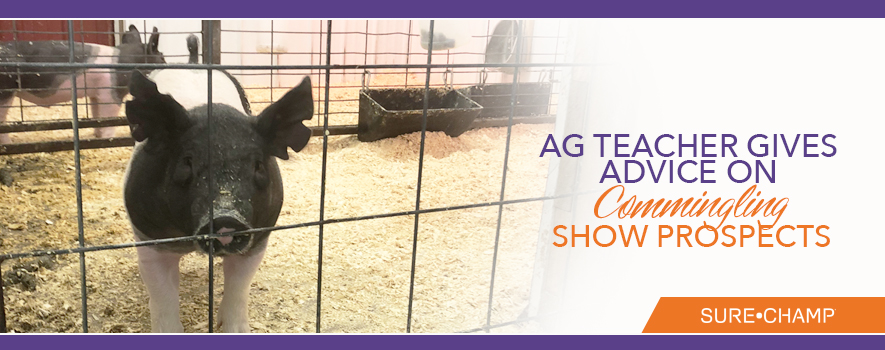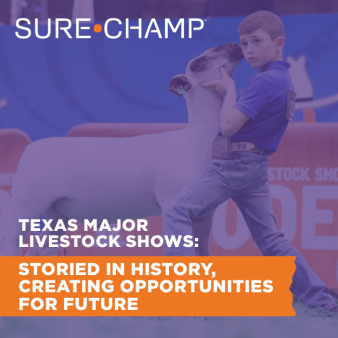
For some people, getting new livestock show prospects is similar to seeing what is under the tree on Christmas morning. Families, students, advisors and teachers can and do spend countless hours studying young animals before deciding which ones to bring home to feed out for their respective show seasons. And then, they get them to their new home, mix them with other animals from other farms, and the invasion of germs begins.
Multiply that times numerous students, families, animals coming from various farms of origin, and you’re no doubt destined for some sickness in your barn. But there are precautionary measures individuals and FFA barns can take to prevent or reduce the impacts of illness from commingling.
“Once we seem to get to middle of November and everybody gets everything bought, you can mark it on a calendar; we’re going to have one round of illness go through there for sure. We try to deal with it as best we can,” said Darryl Nowotny, New Braunfels, Texas, Ag Science Teacher and FFA Advisor.
Nowotny has been an ag teach for 20 years, and is in his 13th year at New Braunfels, where students learn about hogs, sheep, goats and poultry while buying, caring for and preparing to show the livestock at the school farm. The farm will get in nearly 45 show pig prospects each fall to take to the Texas majors and county shows the following spring. Nowotny said a combination of sound health protocols and cleanliness are keys to helping keep so many pigs feeling their best when they are introduced to the barn.
Health & Nutrition
The first step the FFA chapter takes is a meeting with students and parents before buying the animals. Animal health is discussed at the meeting. Buying animals from reputable breeders with a vaccination protocol in place is encouraged. Nowotny said he does help students buy a majority of the animals brought into the barn, but for those families with contacts who buy their own, he always reminds them to make sure the pigs they are bringing in have been vaccinated properly.
Once the new pigs have arrived, all of them are given a dewormer for preventative measures. If Nowotny has hauled a group of pigs he’s purchased a long distance, he will also give them a shot of antibiotics, just to help ward off any unwanted sickness. And the pigs are all fed a starter feed with a dewormer in it for at least the first few weeks.
Nowotny encourages his students to feed their pigs the same time each day, twice a day and to make sure they are eating everything in their feed pans, as a way to check for early signs of illness. Keeping them hydrated with fresh, clean water is also important.
“We teach the kids what to look for. If the pigs are not eating, they are likely getting sick and we need to address the situation,” he said.
One way to keep pigs healthy while boosting their appetite and keeping them hydrated after a long haul and introduction to a new environment is with Vita Charge® Liquid Boost®. Liquid Boost is a multi-species product, but is especially easy to add to show pigs’ water through a medicator. It can also be top-dressed on feed or mixed in a with water in a bucket, and should be given for the first few weeks while they acclimate to their new surroundings.
Sanitation
Prior to introducing new animals to the FFA Barn, Nowotny said they make sure they power wash and sanitize the barn, panels and all the equipment. He said bringing the new animals into a clean environment is a great way to get them off to the right start.
He also encourages his students to wear the same shoes to the barn each time and to disinfect them when they do come into the barn to care for their animals.
Getting new show animals should be exciting. However, commingling does have its challenges, especially as the number of animals you add to the barn increases. If you are truly concerned about your animal’s health, take its temperature or call the veterinarian. Your animals should run a normal temperature, have bright eyes and noses that aren’t runny.
Taking preventative measures and being proactive with your nutrition, health and sanitation practices can make the delivery of your new show projects as exciting as Christmas morning.

